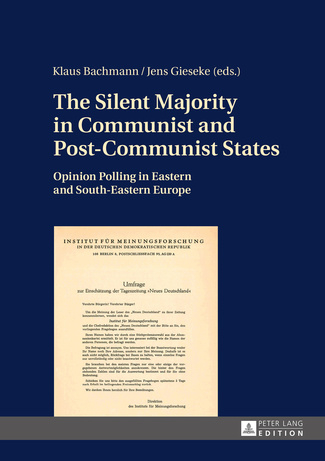This book takes stock of opinion polls in communist and post-communist states, presents specific case studies and answers the question how opinion polls under conditions of censorship and lack of media pluralism differ from those in liberal democratic societies. These polls were mostly used by the ruling establishment to observe shifts in popular opinion and to anticipate protests. They were hardly presented publicly to inform citizens about the prevailing views in their society. Today, these polls often display stories about everyday life, opinion shifts and the legitimacy of state institutions which cannot be derived from other sources.
Contents:
Klaus Bachmann/Jens Gieseke: Introduction – Jirí Šubrt: Mapping the Beginnings of Public Opinion Research in the Czech Lands after World War II – Dragomir Pantic/Zoran Pavlovic: Public Opinion Research in Serbia in the Non-pluralist Period – Jens Gieseke: East German Popular Opinion. Problems of Reconstruction – Oleg Manaev: Public Opinion Polling in Authoritarian States: The Case of Belarus – Klaus Bachmann: Constructing a national myth - the case of the Warsaw Uprising in post-war Poland – Patryk Wasiak: The Appropriation of Social Opinion Survey Research by the State Apparatus in Late State-socialist Poland – Piotr Tadeusz Kwiatkowski: Martial Law in Poland from 1981 to 1983 in View of Public Opinion Polls Conducted by Official Institutions and Underground Organizations – Michal Wenzel: Estimating Trade Union Membership between 1980 and 2012 Using Polling Data – Michael Meyen: Surveys on Media Usage in the German Democratic Republic (GDR) Institutions, Validity, and Outcomes – Hans Erxleben: The Dilemma of the Party’s Own Opinion Research in the GDR. Insights from a Former SED Pollster.
The Silent Majority in Communist and Post-Communist States
Opinion Polling in Eastern and South-Eastern Europe

Bildinfo
Jahr
2016
Ort
Frankfurt am Main, Berlin, Bern, Bruxelles, New York, Oxford, Wien
Verlag
Peter Lang
Seiten
238
ISBN
978-3-631-66668-5
Hier kann die Publikation bestellt werden
